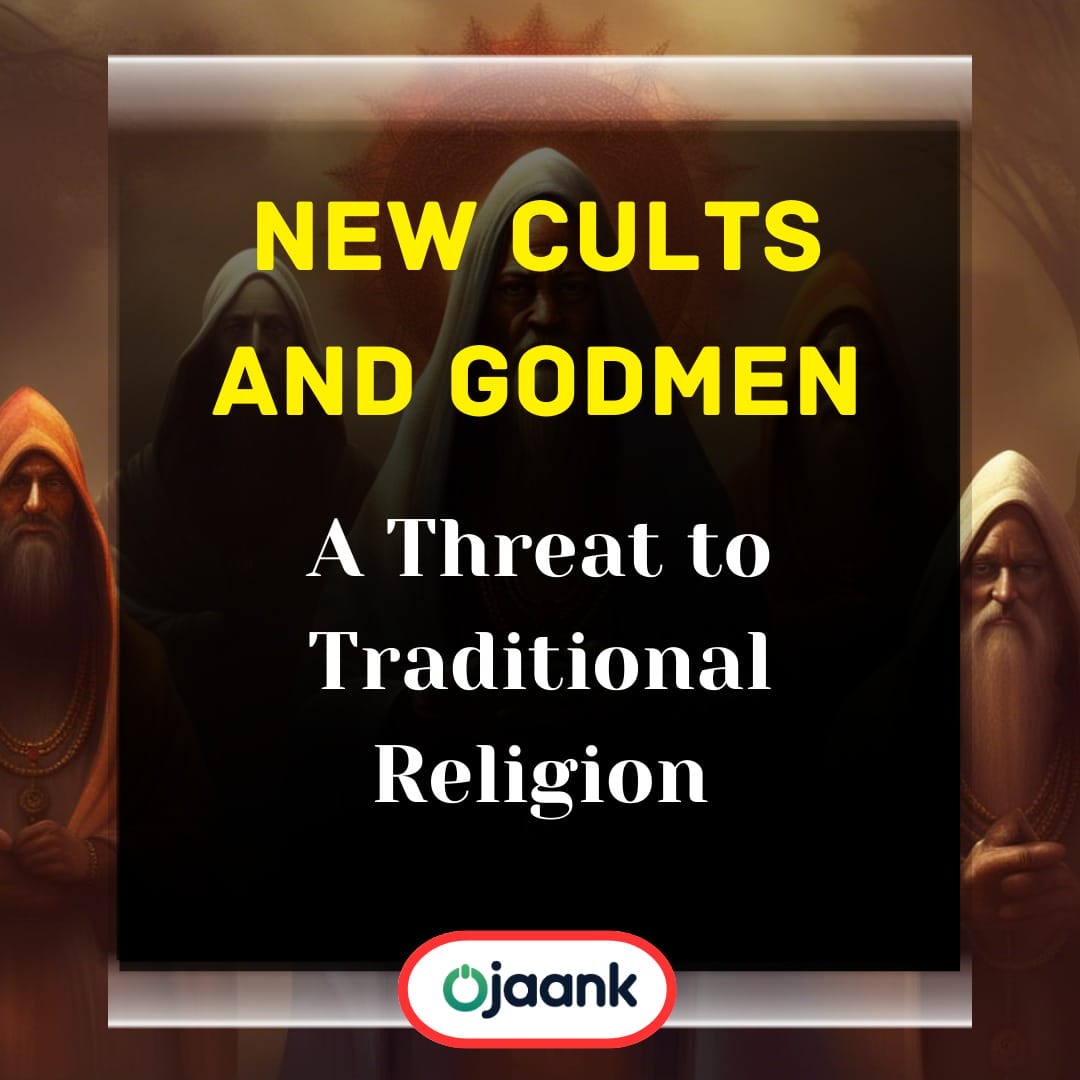New Cults and Godmen: A Threat to Traditional Religion

Throughout history, organized religions have played a significant role in shaping societies, providing moral guidance, and offering a sense of belonging. However, in recent times, we have witnessed the emergence of new cults and charismatic self-proclaimed godmen who have attracted a substantial following. These contemporary spiritual movements often challenge established religious institutions and belief systems, raising concerns about their impact on traditional religions. This essay explores the rise of new cults and godmen and analyzes how they pose a threat to traditional religions.
In the modern age of information, globalization, and rapid communication, the growth of new cults and godmen has become more visible and accessible to people worldwide. These spiritual movements often capitalize on individuals' search for meaning, purpose, and belonging in an increasingly complex and uncertain world. The rise of social media platforms has provided an ideal space for these new movements to disseminate their teachings, attract followers, and spread their ideologies beyond geographical boundaries.
One of the defining characteristics of new cults and godmen is their charismatic leadership. These individuals possess a unique ability to captivate and influence their followers through their persuasive speech, grand promises, and apparent mystical experiences. They often manipulate vulnerable individuals by preying on their emotional needs and exploiting their insecurities, leading them to believe that they hold the answers to life's mysteries.
New cults and godmen often challenge the established authority of traditional religious institutions. They claim to offer a more direct and personal connection to the divine, promising spiritual growth and enlightenment outside the confines of traditional religious practices. This challenges the hierarchical structure of traditional religions, which may lead to a decline in the influence of religious institutions in society.
The proliferation of new cults and godmen can lead to the erosion of religious tolerance and inclusivity. As these groups promote exclusive beliefs, their followers may become more entrenched in their convictions, leading to conflicts with adherents of other religions or even within the same religious community. This divisiveness can fragment societies and weaken the social fabric.
Many new cults and godmen operate as commercial enterprises, exploiting their followers financially. They often demand significant monetary contributions, promising spiritual rewards and prosperity in return. This financial exploitation can lead to severe financial strain on devotees and may cause them to lose trust in traditional religious institutions that are not perceived as demanding as much financial commitment.
New cults and godmen frequently offer a utopian vision or an escape from the challenges and complexities of everyday life. Followers may become socially isolated, prioritizing their devotion to the group or leader above their family, friends, and social obligations. This withdrawal from mainstream society can weaken the social cohesion necessary for a thriving community.
The all-encompassing nature of cults and godmen can lead to severe psychological consequences for their followers. Some individuals may experience cognitive dissonance when confronted with conflicting beliefs or actions, causing distress and confusion. Additionally, the tactics used by cult leaders, such as thought control and isolation, can lead to mental and emotional manipulation.
In some cases, new cults and godmen have been involved in illegal activities, such as fraud, physical abuse, or sexual exploitation. Such actions not only harm the followers directly involved but also tarnish the reputation of religious institutions in general, making it difficult for people to trust any religious authority.
The rise of new cults and godmen represents a complex challenge to traditional religion and its place in modern society. While the pursuit of spirituality and personal growth is inherent in human nature, it is essential to remain vigilant about the potential dangers posed by unscrupulous leaders and manipulative ideologies. To address this threat effectively, societies must promote critical thinking, religious tolerance, and ethical awareness, fostering an environment where individuals can seek spiritual fulfillment without falling victim to exploitative practices.